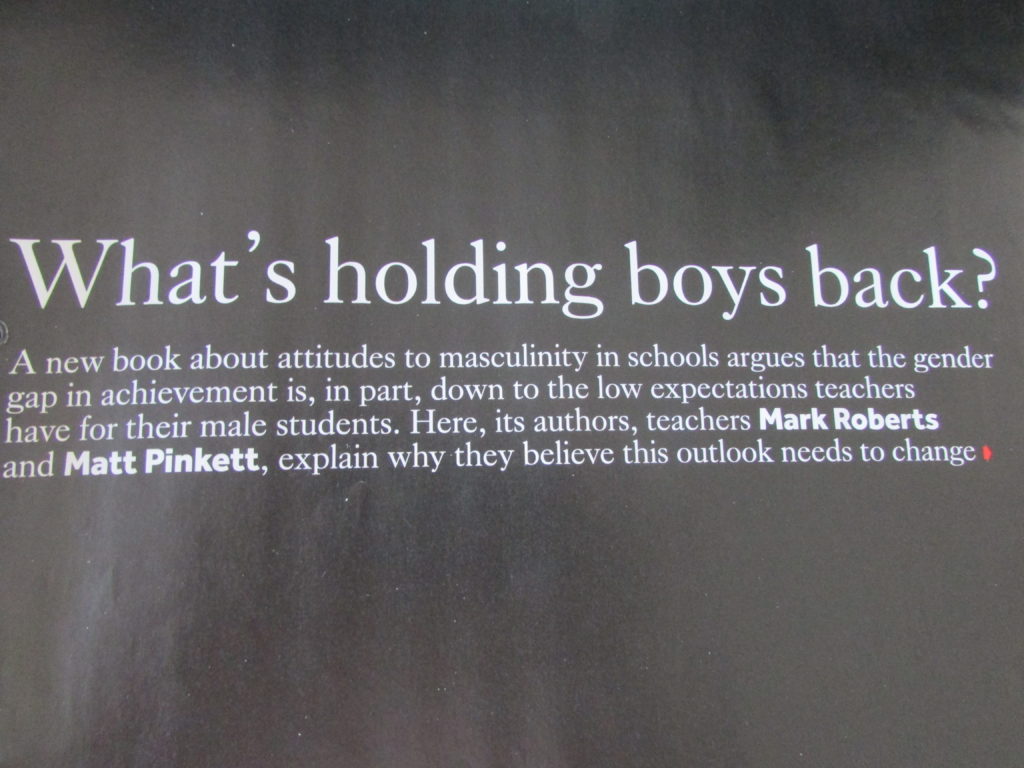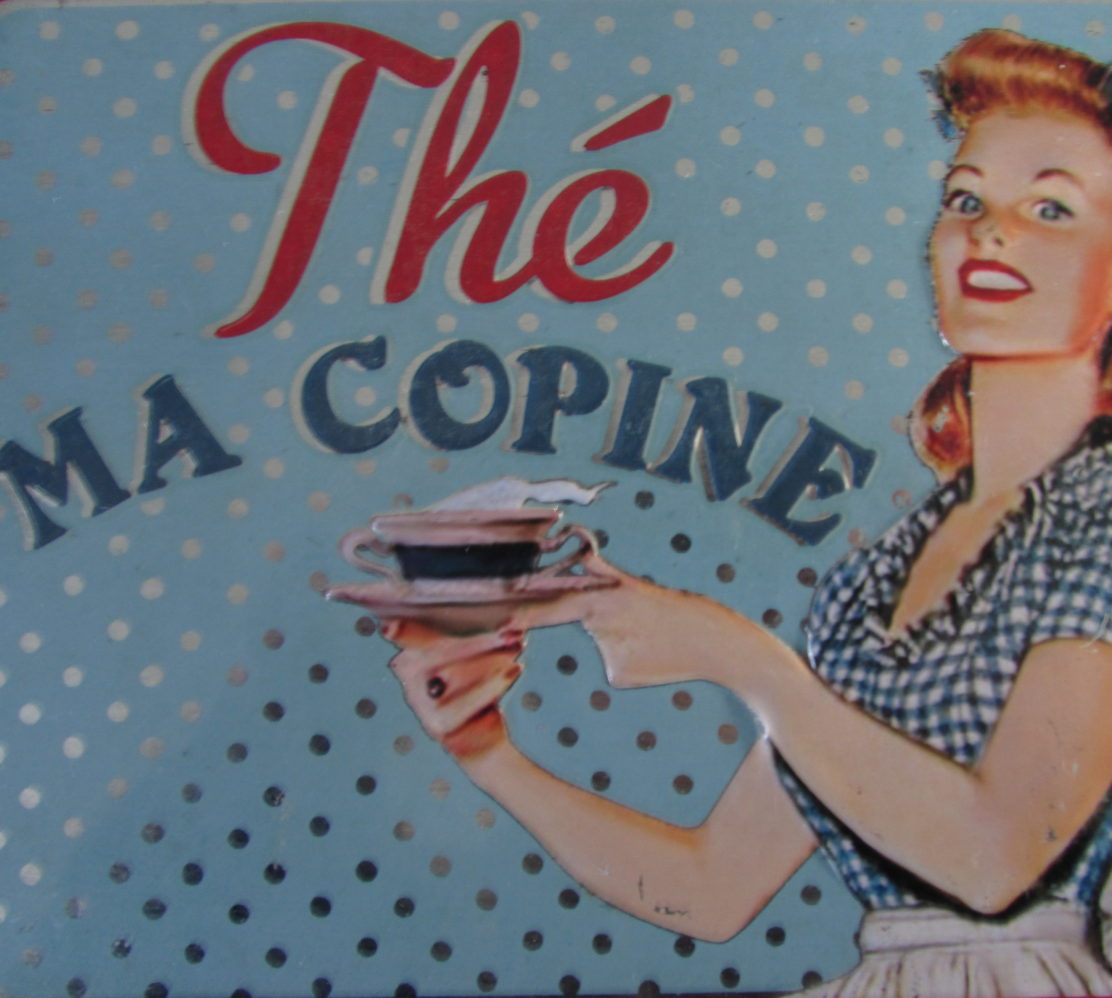
I regularly read the TES magazine (the “Times” weekly Education Magazine), and one recent article called my attention. It was called “What’s holding boys back?” and exposed how our stereotypes are letting the boys behind in education. After all the talks about equal opportunity, I was finally happy to read something about the future of the boys and a reflexion on it. I am the mother of a son now aged 11, and the recent surge in feminism left me wondering the world he was going to grow into and the place society will allow him to have. There is such a strong sense of revenge from women from all the years of inequality that I fear the world might head too much the other way and starts victimizing the men. Not only that, but the article pointed out a concern that I had since my son was born, the fact that the expectations are usually lower for boys, with no apparent reason. Having 3 daughters and 1 son, I have often complained in front of friends and relatives that my son would not behave as responsibly and wisely as my daughters, and I could even add sometimes the word kindly. When I have complained that my son wouldn’t keep himself busy with an interesting hobby, wouldn’t naturally help in any chore in the house, wouldn’t be trusted in following house rules, wouldn’t respect feelings or privacy, and so on, I always receive the same reply “Well, it’s a boy”. To which I have always wanted to scream: “Does it really mean that my expectations should be lower about his education and his behaviour?” I do recognize that, despite what society wants us to believe, boys and girls do grow and behave differently, that they have different ways to relate to the world and to others, and that they should be allowed to be different. But I don’t think that should make excuses for boys when they are not putting enough efforts. Don’t get me wrong, this is not a description at all of the boys in general, but they do have a tendency to prefer screens over other activities, for putting themselves first and not listening to others. The TES article says that from an early age, boys in a school environment are usually recognised as “class clowns”, “underachievers”, “less mature” than girls. In fact, there is a common opinion that boys are noisier and more easily distracted than girls, can’t concentrate as much and can get by with being rude or naughty. The article states that in general these stereotypes affect boys’ achievement as they are not expected to perform as well as girls (having also an effect on girls who are, on the contrary, always expected to perform and behave well!).
So maybe if we are looking at proper gender equality, we should probably include raising the bar for boys and allow them to aim for the best from an early age! And after all, despite the portrait I have depicted of my son, I might not be such a bad Mum in believing that he does have an amazing potential waiting to be nurtured and developed, if only people would stop to make excuses for him all the time…
